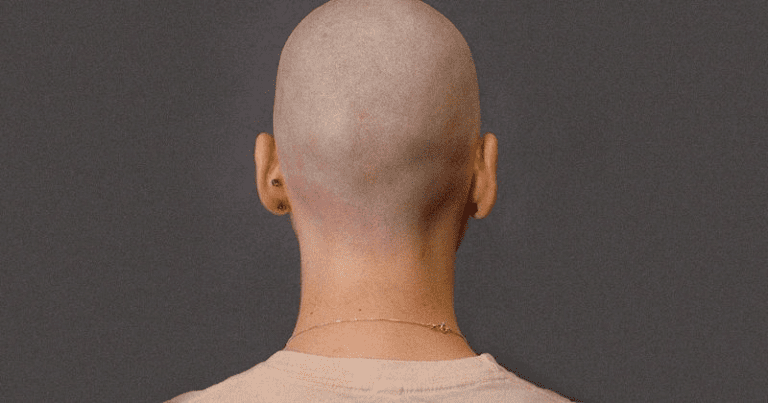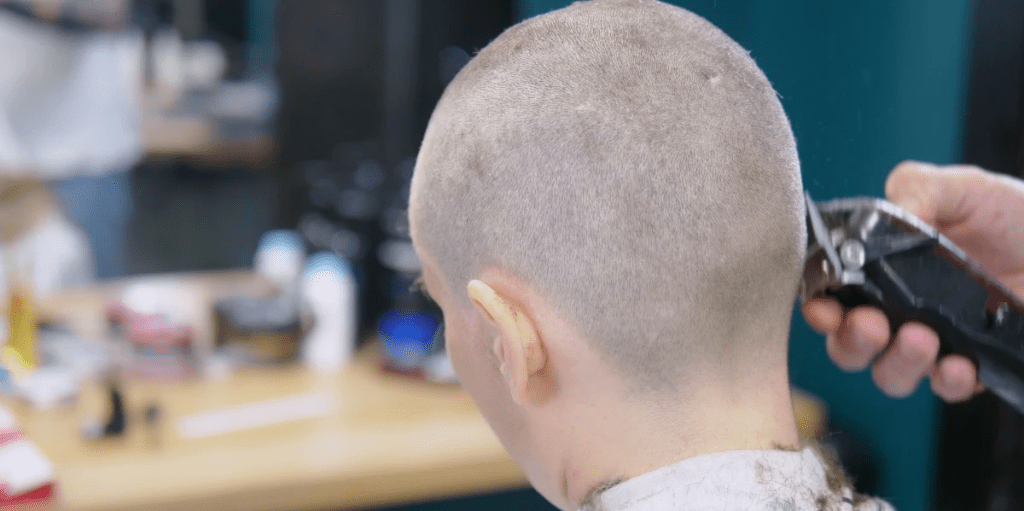In a world where bullying continues to haunt our schools and communities, the story of one father’s radical action to discipline his daughter has sparked a nationwide debate. When his teenage daughter cruelly mocked a peer with cancer by ripping off her wig, this father chose a shocking way to teach her a lesson on empathy—by shaving her head. The move has ignited questions about the thin line between discipline and punishment, and the role of parents in shaping compassionate, understanding children.
The Incident: A Cruel Act Sparks Outrage

The feud between the father’s 16-year-old daughter and another girl at school had been simmering for some time. The rivalry stemmed from the fact that the daughter was now dating her peer’s ex-boyfriend, creating an atmosphere of hostility that eventually boiled over into an incident that would change their lives. In a fit of mean-spirited cruelty, the daughter humiliated the other girl, who was battling cancer, by pulling off her wig in front of their classmates. According to the father, his daughter showed no remorse, stating that the victim “deserved it.” Faced with his daughter’s apparent lack of empathy, he decided that a severe response was necessary.
Two Choices: The Father’s Ultimatum
As a parent, the father was confronted with a dilemma. How could he teach his daughter the weight of her actions? He ultimately gave her two choices: she could either relinquish all her electronic devices permanently or have her head shaved. The daughter chose the latter, and the father followed through, shaving her head as a symbol of the humiliation she had inflicted on her peer. He believed that by physically experiencing what her victim had to endure daily, she might develop a sense of empathy and regret for her actions.
The Mother’s Objection: A Divided Family
Not everyone agreed with the father’s approach. His ex-wife, the mother of the teenage girl, was outraged by his decision, claiming that shaving their daughter’s head would make her vulnerable to further bullying. She argued that, rather than teach a lesson in compassion, the act would only subject the daughter to the same ridicule she had imposed on someone else. Despite her objections, the father stood firm, maintaining that the discipline was a necessary step to help his daughter understand the hurtfulness of her behavior.
Public Reaction: Discipline or Abuse?
The father’s decision quickly made waves beyond the family circle, sparking heated discussions about parental discipline and boundaries. Some believe his approach was excessive, labeling it as a form of public shaming or even emotional abuse. Others, however, applaud his bold stance against bullying, viewing his actions as a necessary lesson in empathy that traditional punishment methods often fail to instill.
The divide in public opinion highlights a broader issue in society—how far should parents go in addressing unacceptable behavior in their children? While some advocate for tough love, others warn that extreme disciplinary tactics can have unintended psychological impacts, potentially damaging a child’s self-esteem and relationship with their parent.
Exploring the Psychological Impact of Public Shaming
Public shaming has long been a controversial form of punishment. Many psychologists argue that it can lead to feelings of isolation, resentment, and humiliation, rather than the intended reflection and remorse. In some cases, it can even backfire, driving a child to act out further in response to perceived injustice or embarrassment.
However, proponents of tough love argue that sometimes, extreme behavior necessitates an equally extreme response. For them, the shaved head serves as a powerful symbol of consequence—one that is difficult to forget and may serve as a lifelong reminder of the importance of kindness and empathy.
The Role of Parents in Fostering Empathy

Parenting is often a delicate balance between guiding children toward positive behaviors and allowing them the freedom to make mistakes and learn from them. In cases like this, many parents might wonder how best to foster empathy and compassion. How can a child be taught to feel for others and understand the impact of their actions? Some experts suggest that rather than punishment, parents should focus on empathy-building exercises, such as volunteering, engaging in open conversations about feelings, and modeling compassionate behavior.
Yet, as this story demonstrates, there is no one-size-fits-all answer. In this father’s eyes, his daughter’s actions demanded a dramatic response. But as parents, we must also consider whether these actions leave a lasting positive impact or create new issues that may shape a child’s behavior for years to come.
A Controversial Lesson with Lasting Impact

Ultimately, the father’s choice to shave his daughter’s head in response to her bullying actions stands as a complex example of discipline in the face of a serious moral failing. The story leaves us with an important reminder: sometimes, the lessons that leave the most significant impact are the ones that challenge our beliefs about right and wrong.
This situation raises essential questions about the role of parents in combating bullying and fostering empathy in their children. For some, the father’s actions serve as an inspiring example of a parent willing to stand up against cruelty and insensitivity. For others, it’s a cautionary tale about the risks of taking discipline too far.
Conclusion: The Fine Line Between Discipline and Punishment
In the end, this father’s drastic decision to shave his daughter’s head was an attempt to impart a valuable lesson on compassion and empathy. But it also highlights the complexities of parenting and the profound impact that disciplinary choices can have on a child’s development. Bullying is a serious issue, and while the father’s response may seem extreme to some, it reflects the lengths to which parents may go to teach their children about kindness and accountability.
As we reflect on this story, we’re reminded of the importance of instilling empathy and respect for others in the next generation. While the path to achieving that goal may differ for each family, stories like this one encourage us to consider how our actions, big or small, shape the values and understanding of the young people in our lives.


